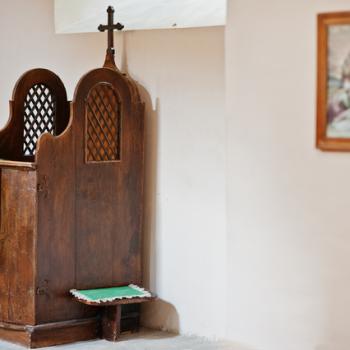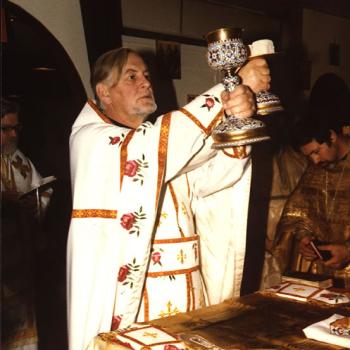Every other week in this column, I share glimpses of Journey, the church where I pastor, as we come together to plan our gatherings and discuss what will be our Sunday conversations and talk about what it means to be the Church and how we can embody it together in worship. But I get it: a church led by a true community of people (rather than one central pastoral figure or a pastoral staff) can sound rather lofty and idealistic. The question is: how do we know it's real?
Here is one possible answer. Late Saturday evening, I contracted a rather violent stomach bug. By 10:00 am Sunday morning, all my optimistic delusions about getting better within a few hours and preaching at 5:00 pm had vanished. I emailed the elders, and within minutes I received no-stress responses that they had it all covered. I forwarded my notes along to them, and then I spent the rest of the day attempting to die on my couch. Around 7:00 pm, my phone started beeping with text messages: the gathering went great, the back to school blessing was really nice, the discussion was good.
That the evening went off without a hitch is one way of saying our community is a real, functioning community. But for me, the real indicator is that I did not, for one second, worry. I didn't worry that they wouldn't have things to say, or that there weren't enough people to step into all the places where they would be needed, or that the kids' room would be covered, or that visitors wouldn't be properly welcomed. People just step up, even at the eleventh hour—especially at the eleventh hour—and do what needs to be done.
All summer, we were in a holding pattern waiting to undergo a renovation in our space. We knew at some point we would need to empty out the room and move all of our stuff into storage. As it turned out, we had about a week's notice. We announced one Sunday that we would need to move every single thing out of the room the following Sunday after the gathering. We promised pizza and asked for help. Before 11:00 the night of the move, that room was empty. It felt like we were on one of those TLC home makeover shows, where the video speeds up and you see bodies moving furniture out like mice running across the screen. We emptied 3500 square feet of sound equipment, office supplies, boxes, Christmas decorations, pews, couches, tables and art in a little over three hours.
Once, on Pentecost, I was out of town speaking at a conference. My flight was supposed to return to Dallas by noon, but it was delayed. I called to give an early alert and nervously watched the boards. Delayed again. In the airport terminal I sent my notes and called to talk through the gathering with them. I did not arrive home until late into the evening. I was incredibly sad to have missed Pentecost (my favorite, favorite Sunday of the year) but the night went on just fine without me.
And I suppose that is what I'm trying to say. If you're a community pastor, it should come as no surprise that the night can always go on fine without you. Because it isn't about you. It's about being the people of God together, which requires everyone to have the responsibilities of participating corporately in worship.
So I can't tell you this week what we talked about on Sunday, because I wasn't there. But I know the conversation was vibrant, and honest, and from what I heard had at least a few jokes about the pastor at home throwing up into in a chamber pot. And I wish I could have been there—not to speak, but to listen. Because the conversation that happens there is always something I find worth hearing, no matter who's guiding it.
8/24/2011 4:00:00 AM





